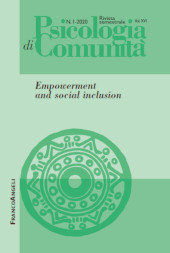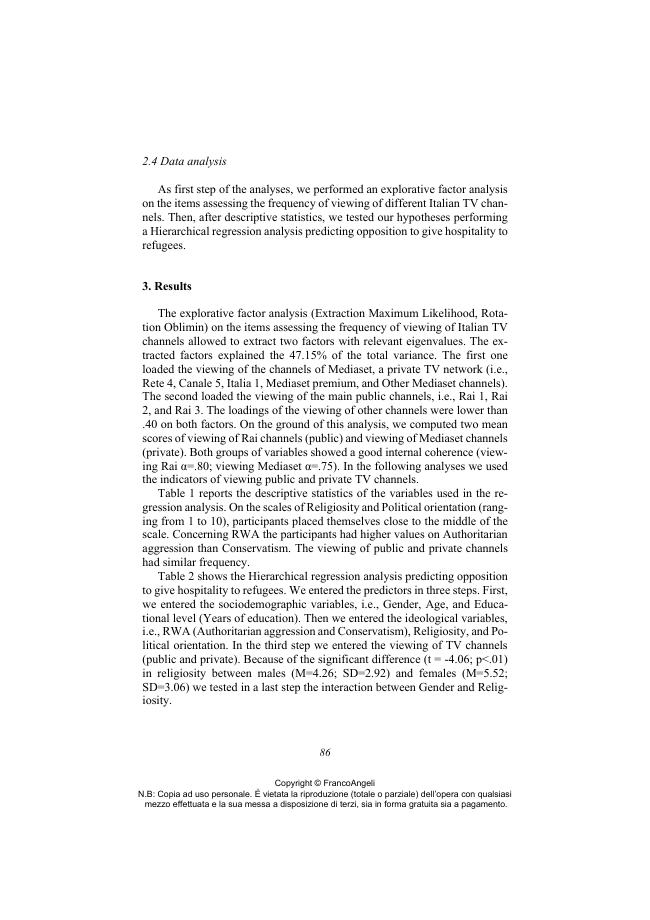Attitudes toward refugees in the Italian context
80-92 p.
Considering the concern over the rising xenophobia, it is particularly relevant investigating attitudes toward refugees in the Italian population. Within literature, a considerable amount of research is related to prejudice toward different immigrant groups, but few studies have inves-tigated the predictors of opposition to hospitality of refugees. The aim of the study was to compare the effects of different variables in predicting the opposition to give hospitality to ref-ugees. The variables investigated were socio-demographic characteristics, political orientation, religiosity, Right-Wing Authoritarianism (RWA), and TV consumption. Data were collected by means of a self-report questionnaire on a sample of 366 Italian adults (Female 55.9%; mean age 39.86, SD=17.09). To test the influence of different variables, we performed a hierarchical regression analysis.
We found several significant influences. Results showed that individual factors played an important role in predicting the opposition to hospitality of refugees, but also environmental factors such as mass media influenced the attitude toward this specific social group. Implications in terms of intervention are discussed. [Publisher's text].
Alla luce di una allarmante diffusione di sentimenti xenofobi tra cittadini italiani, risulta di primaria importanza studiare gli atteggiamenti della popolazione italiana nei confronti dei rifugiati. Esistono in letteratura tanti studi sul pregiudizio nei confronti degli immigrati ma pochi hanno indagato l'ostilità verso i rifugiati. L'obiettivo di questo studio è comparare gli effetti di differenti variabili nel predire atteggiamenti di opposizione all'ospitalità dei rifugiati. Le varia-bili prese in esame sono: caratteristiche sociodemografiche, orientamento politico, religiosità, autoritarismo di destra (RWA) e visione di canali televisivi. I dati sono stati raccolti tramite questionario somministrato a un campione di 366 adulti di nazionalità italiana (55.9% femmi-ne; età media 39.86, SD=17.09). Per la verifica delle ipotesi è stata utilizzata una regressione gerarchica. I risultati hanno mostrato sia l'influenza dei fattori individuali che il ruolo dei mass media.
Nello specifico aumentano l'opposizione all'ospitalità l'età, l'orientamento politico di destra, l'aggressività autoritaria, la visione dei canali Mediaset mentre, solamente per le donne, la religiosità ha un effetto negativo. Le implicazioni in termini di intervento sono discusse. [Testo dell'editore].
-
Articles from the same issue (available individually)
-
Information
ISSN: 1971-842X
DISCIPLINES
KEYWORDS
- Rifugiati, atteggiamenti, religiosità, autoritarismo di destra, orientamento politico, TV.
- Refugees, attitudes, religiosity, right-wing authoritarianism, political orientation, tv consumption



